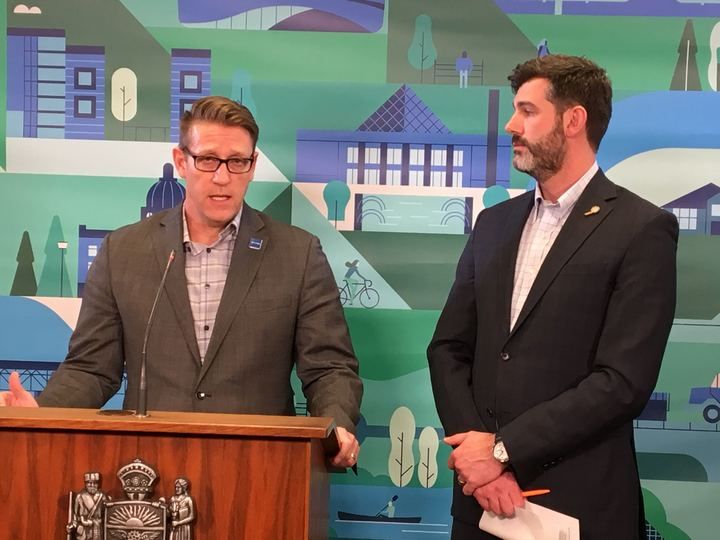Mayor Don Iveson, along with his municipal colleagues across the country, have delivered the message that they need way more money to restart transit and restart the economy.

Iveson told reporters Monday that either Edmonton gets the emergency injection from the federal government that it’s asked for or it will have to scale back spending on the very things Ottawa wants done.
Iveson said the message was delivered in a conference call Friday with the Big City Mayors’ Caucus, and Deputy Prime Minister Chrystia Freeland. Collectively, the Big City Mayors delivered a $10 billion – $15 billion request to the feds on April 23.
“Our ongoing conversations with provincial and federal governments have encountered the typical Canadian complexity of constitutional nicety which is to say: ‘whose responsibility are cities?'”
Iveson said the tab nationally for transit alone is $400 million a month. Edmonton’s share is an overall request of $217 million as a portion of the FCM backstop needed over six months through September. $57 million would be for Edmonton transit.
It costs Edmonton Transit Service approximately $28.5M per month to operate conventional bus, LRT and para-transit. Additionally, ETS is experiencing approximately $10M per month in lost revenue due to reduced ridership during the pandemic.

If Edmonton doesn’t start seeing that money either from the feds, the province or both, city council will have to start looking at scaling back the very infrastructure projects that would create construction jobs, or the services needed to cope with the COVID-19 recovery.
“Without support, we’re not going to be able to help,” Iveson said.

Get weekly money news
“We may actually be forced to start to hinder Canada’s economic recovery.
“That’s not what we want to do but if we don’t get help, that’s where we’re going to end up. So the situation has unfortunately become more dire.”
“A clear signal that premiers and the prime minister understand our issue and want to help would allow us the breathing room to work mechanisms being lost in the jurisdictional shuffle.”
“We’ve made the case, for example, that as things ramp up and people try to go back to work, we’re going to have to increase the frequency of transit service in order to support increased labour mobility and likely that’s going to deepen that $400 million a month hole that we’re already trying to find a way to fill in to something even bigger,” Iveson said.

“We have heard that the federal government is concerned about singularly taking on that challenge, and expects provinces who are the stewards of municipalities under the Constitution to have an active role in this because they will also benefit from the economic resurgence and resilience that local governments will be essential to.”
“I would say it’s all of our collective responsibility and right now Canadians expect mayors, ministers, premiers and the prime minister to be all focused on creating conditions for economic recovery in our country.”
Iveson said time is getting tight, especially as economies move towards phase one of the relaunch. “We’re getting to the edge where by the further cuts that we would make would begin to create the austerity that would offset the stimulus that senior orders of governments want to start to roll out. That is to say the scale down of services or the scale back of infrastructure in cities at prescisely the time when we’re trying to relaunch.”









Comments
Want to discuss? Please read our Commenting Policy first.